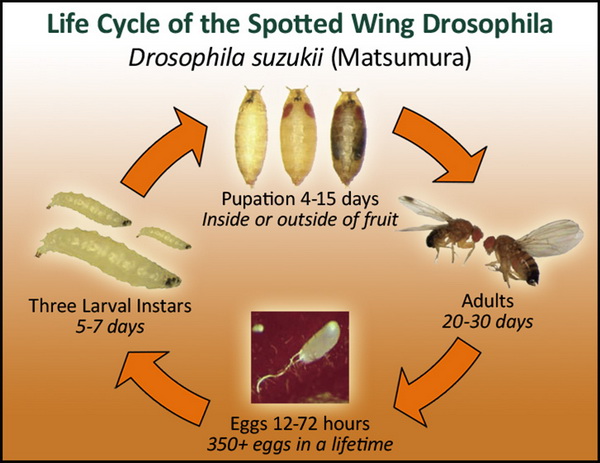Spotted Wing Drosophila
Genus species: Drosophila suzukii
SWD looks like the typical vinegar fruit fly, Drosophila melanogaster, of genetics fame. Female vinegar fruit flies lay eggs in damaged or overripe fruit and, hence, are mainly a nuisance. In contrast, female SWD can lay their eggs in ripe, marketable fruit leading to direct damage of fruit by the larvae. They have saw-like ovipositors, the part of the fly used for egg laying. These slice through the skin of ripening fruit to lay eggs inside.
SWD may survive winter conditions in the Northeast — they are found in similarly cold areas of Japan. However, current research in North America is finding few SWD adults, or none, in spring, indicating high mortality over the winter. The lethal minimum temperature killing 75% of SWD flies after a 24-hr exposure is around 28° F.
We know that SWD populations build to high levels by mid- to late summer. Invest in an accurate thermometer and keep track of how hot it gets during the summer fruiting season. The lethal maximum temperature killing 75% of SWD flies after a 24-hr exposure is around 91° F. Read more on this in the SWD blog, Frozen or baked SWD?

Additional information:
- Spotted Wing Drosophila Winter Biology (2016 Fruit Quarterly v. 24-3)
- Plant Protection and Quarantine Pest Alert – Drosophila suzukii (Spotted Wing) – USDA
- Regional Pest Alert – Spotted Wing Drosophila – Northcentral IPM Center
- Spotted Wing Drosophila – NYS IPM Program
- Spotted Wing Drosophila fact sheet, UC IPM Online
